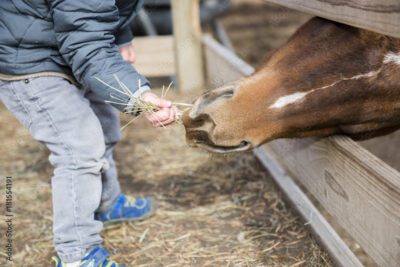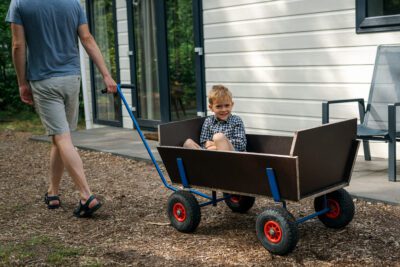By Christine Denise
Autism Mom and Contributing Writer for As You Are, a virtual clinic dramatically increasing access to early autism diagnostic services through the use of exclusively telehealth appointments
I can feel myself take a deep breath and rush over anytime I see a kiddo approaching my son who has autism.
I have come to arm myself for it, automatically going into helicopter mode whenever another youngster innocently approaches and asks my son to play, only to look at him strangely when they don’t get an answer or get a reaction like flapping hands or sounds that don’t make sense in response.
A parent’s presence in a situation that plays out countless times on playgrounds or other places where kiddos gather can dramatically change the outcome.
Instead of feeling comfortable approaching your child, another child may see you as a stranger that their parents have rightfully told them not to talk to.
Lately, though, I have found myself pleasantly surprised by letting the scenario start to play out without my close presence, without my gentle instruction to other kids that my son understands what they’re saying, but just can’t talk back to them.
And I would encourage you, too, to find a balance between standing on guard and letting some of that guard down.
The Fruits of Inclusion
That’s because I truly do believe the world is becoming more aware of autism.
The way I measure that is by how other children approach my son, Louie.
At our neighborhood park, I saw a fully-functioning little girl take him by the hand and lead him to the splash pad. My heart skipped a beat when I saw her grab his hand, thinking surely he might grab hers and try to bite it in a feeling of excitement that overwhelms him so much he doesn’t know how else to express it other than to fulfill it in an oral sensation that gives him a release.
But, my tendency to anticipate the worst scenario took a back seat as I watched the moment unfold instead of trying to end it fearing something bad might happen and how I must protect my son no matter what.
She knew his name and she knew he wouldn’t have a typical reaction to her. Much to my surprise, she told me she went to school with him. She knew all about the “special” class he is in that does music, art and other special classes with hers.
The moment was over just about as quickly as it began, as my son preferred to explore the fountains at the splash pad without holding her hand. She ran along with him, completely oblivious and unoffended by how much he seemed to ignore her.
The fruits of inclusion – the push schools and society has made to integrate those with disabilities among those who do not – were blooming right before me.
Navigating Get-Togethers
A few other examples include recent get-togethers with friends who have typical children – one of them a 16-year-old boy, whose parents griped about how he has become the biggest bully to his younger brothers.
When it came to Louie, this teenager couldn’t get enough of him, taking him swimming in their pool, taking him for a walk along the boat docs, helping him eat and lifting him in the air by his arms and flipping him over like he loves to do.
He, too, goes to a public school where he is exposed to children with special needs.
We also visited with some friends who have a 12-year-old son, who is the same age as our typical twin boys.
We figured the three of them would have a blast together, and my husband and I would just have to manage Louie during the gathering.
We very much want our typical children to experience friendships and hang out with their peers and not constantly worry about their younger brother being included.
But this little boy made the decision for them. He was the one talking to Louie, encouraging him to go down a slide that intimidated him and pushing him on a swing.
Our twin boys fell in line, because doing those activities with their brother is something they do regularly. For them to see one of their peers actively including their little brother took them back a bit, too.
Letting Go and Having Hope
These moments have given me something to hold onto because apprehension about how the world will receive our son can take over.
It’s given me hope that society is changing the way it views – and interacts with – those who are different than most.
And it’s helped me stop bristling and bracing for the worst every time another child starts coming toward my son.
Do you have questions about your child’s development? The team at As You Are provides useful autism screening and diagnostic evaluations for kids 16 months to 10 years old via telehealth appointments.
Disclaimer: I am not a medical professional. This is a sponsored blog post, but all opinions are my own.


















